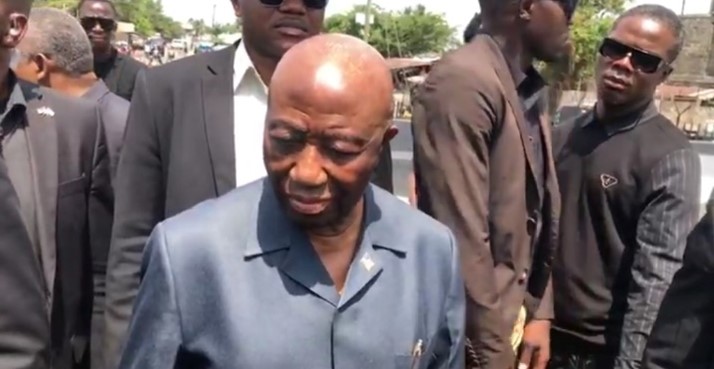President Joseph Nyuma Boakai of Liberia marked Unification Day 2025 with a resounding call for national unity and reconciliation, extending an olive branch to key opposition figures and emphasizing the importance of collaborative governance. His actions signaled a commitment to inclusivity and a departure from potentially divisive politics, setting a tone of cooperation and shared purpose for his administration. This gesture of goodwill, embodied in personal phone calls to prominent political leaders, aimed to bridge political divides and foster a spirit of collective responsibility towards national development.
Boakai’s outreach encompassed former Presidents Ellen Johnson Sirleaf and George M. Weah, representing significant political forces within Liberia. He also contacted Alexander B. Cummings of the Alternative National Congress (ANC) and Benoni Wilfred Urey of the All Liberian Party (ALP), demonstrating a willingness to engage with diverse political perspectives. This inclusive approach signifies a move towards building consensus and fostering a political environment conducive to addressing national challenges. By engaging with former leaders and current opposition figures, Boakai sought to establish a foundation for collaborative problem-solving and shared progress.
Beyond the political sphere, President Boakai extended his message of unity to religious and traditional leaders, recognizing their influence and role in fostering social cohesion. He reached out to the Liberia Council of Churches, the National Muslim Council of Liberia, and the Chairman of the National Council of Chiefs and Elders, underscoring the importance of interfaith dialogue and collaboration with traditional authorities in the pursuit of national unity. This comprehensive approach reflected a recognition that achieving true unification requires engaging all segments of Liberian society.
In his Unification Day address to the nation, President Boakai reiterated his commitment to inclusive governance and urged all Liberians to embrace the principles of unity, patriotism, and collective progress. He underscored the need for every citizen to contribute to building a peaceful, equitable, and prosperous Liberia. This call to action emphasized the shared responsibility of all Liberians, irrespective of their political affiliations or social backgrounds, in shaping the nation’s future. Boakai’s message resonated with the spirit of Unification Day, emphasizing the importance of working together to overcome national challenges and achieve common goals.
President Boakai also addressed the recent leadership standoff in the House of Representatives, commending the peaceful resolution and congratulating the newly elected Speaker, Richard Nagbe Koon. He urged Speaker Koon to lead with inclusiveness and humility, emphasizing the need for cross-party collaboration to effectively address the needs of the Liberian people. Boakai acknowledged the role of former Speaker Fonati Koffa in facilitating the peaceful resolution, highlighting the importance of putting national interests above personal or political considerations. This emphasis on unity and collaboration within the legislature exemplified the president’s broader message of working together for the betterment of the nation.
In concluding his address, President Boakai emphasized the need to move beyond mere rhetoric and translate the ideals of unification into concrete actions. He called for unity to become a way of life, permeating all aspects of governance, interpersonal interactions, and responses to national challenges. This call for a fundamental shift in mindset and behavior highlighted the importance of embedding the principles of unity within the fabric of Liberian society. Boakai’s message conveyed a sense of urgency and determination to move beyond symbolic gestures and embrace a genuine spirit of unity in addressing the complex issues facing the nation. He underscored the need to address economic hardships, climate change impacts, and the aspirations of youth with a united front, recognizing that these challenges transcend political divisions and require a collective response.


